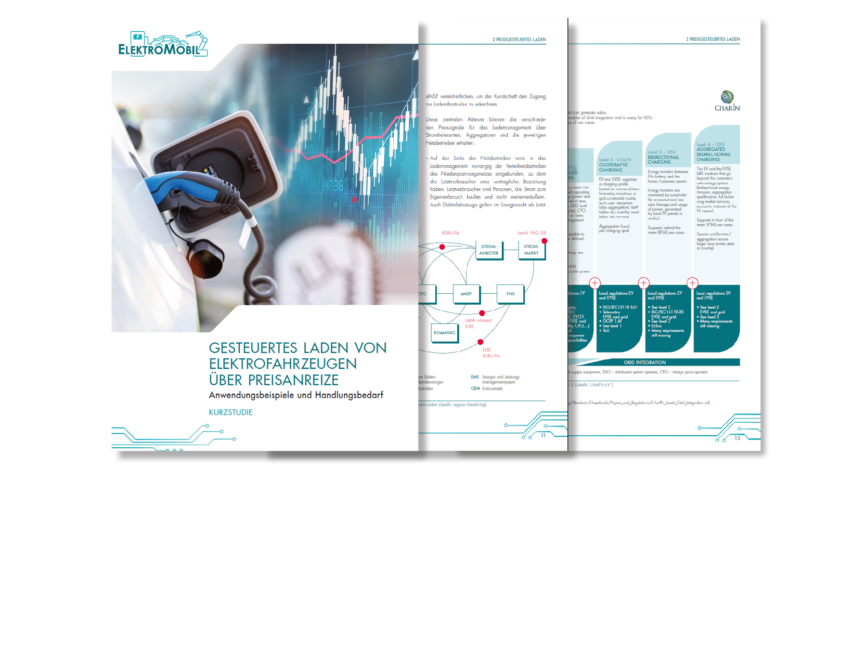New study published
Intelligent load management for e-vehicle fleets

Charging electric vehicles in an uncoordinated manner can lead to peak electricity consumption and thus high costs – especially for companies and fleet operators. The solution: Intelligent load management.
A recently published short study, which was prepared in cooperation with ÖKOTEC, shows how intelligent load management can be used as another component of the energy transition for industry.
With an intelligent load management, Electricity is only obtained when there is sufficient capacity in the power grid. In addition, renewable energies can be used more efficiently, therefore an active contribution to environmental and climate protection is achieved.
The amount of electromobility increases continuously
Around 309,100 electric cars are currently registered in Germany. Compared to the previous year, the number has more than doubled (Statista). The German government, for example, is aiming for seven to ten million registered electric vehicles in Germany by 2030. The goal is for the transport sector to reduce its CO2 emissions by 40 to 42 percent.
The German Federal Ministry for Economic Affairs, Energy and Technology (BMWi) is currently funding 30 research and development projects with the aim of establishing intelligent and future-proof charging infrastructure by its “Electro-Mobil” subsidy.
Load management led to lower network charges and procurement costs at BSR
In the framework of the subsidy, the City Cleaning of Berlin (BSR) has developed and deployed a concept for price-controlled charging together with ÖKOTEC. The Disposal and Recycling Company of Berlin (BSR) was looking for a technological solution to set up the charging infrastructure for its e-vehicle fleet, which is currently being built up, in a future-oriented and cost-optimized way, taking into account all fleet-side usage requirements. BSR has been able to save 16 percent per megawatt hour on electricity demand through intelligent charging control. Furthermore, peak loads are avoided, which reduces costs for network charges.
More efficient use of renewable generation capacity
With intelligently controlled charging, renewable generation capacity can be used more efficiently, which in turn reduces the need for (or: the use of) backup power plants and storage. If the timing of electricity demand is adjusted, electricity from renewable sources can be increasingly used. Renewable energies are often subject to weather-related fluctuations and fluctuations in power generation. This makes an important contribution to environmental and climate protection – the percentage of renewable energies in Germany is to be increased from the current level of around 33 percent to around 80 percent of gross electricity generation by 2050 (Renewable Energy Law).
Study shows concepts for the implementation of intelligent load management
The short study “Controlled charging of electric vehicles via price incentives” presents selected concepts for the implementation of price-controlled charging management. Subsidies are presented and discussed as examples for further use or further development, as well as the economic and technical possibilities of implementation. Challenges of price-controlled charging management are shown based on these concepts. In addition, the users’ point of view is also pointed out. The short study was prepared as part of the accompanying research activities of the “Electro-Mobil” subsidy.

Study: Controlled charging of electric vehicles via price incentives (German)
Application examples and need for action
Your Contact
Image: CC7/Shutterstock.com


